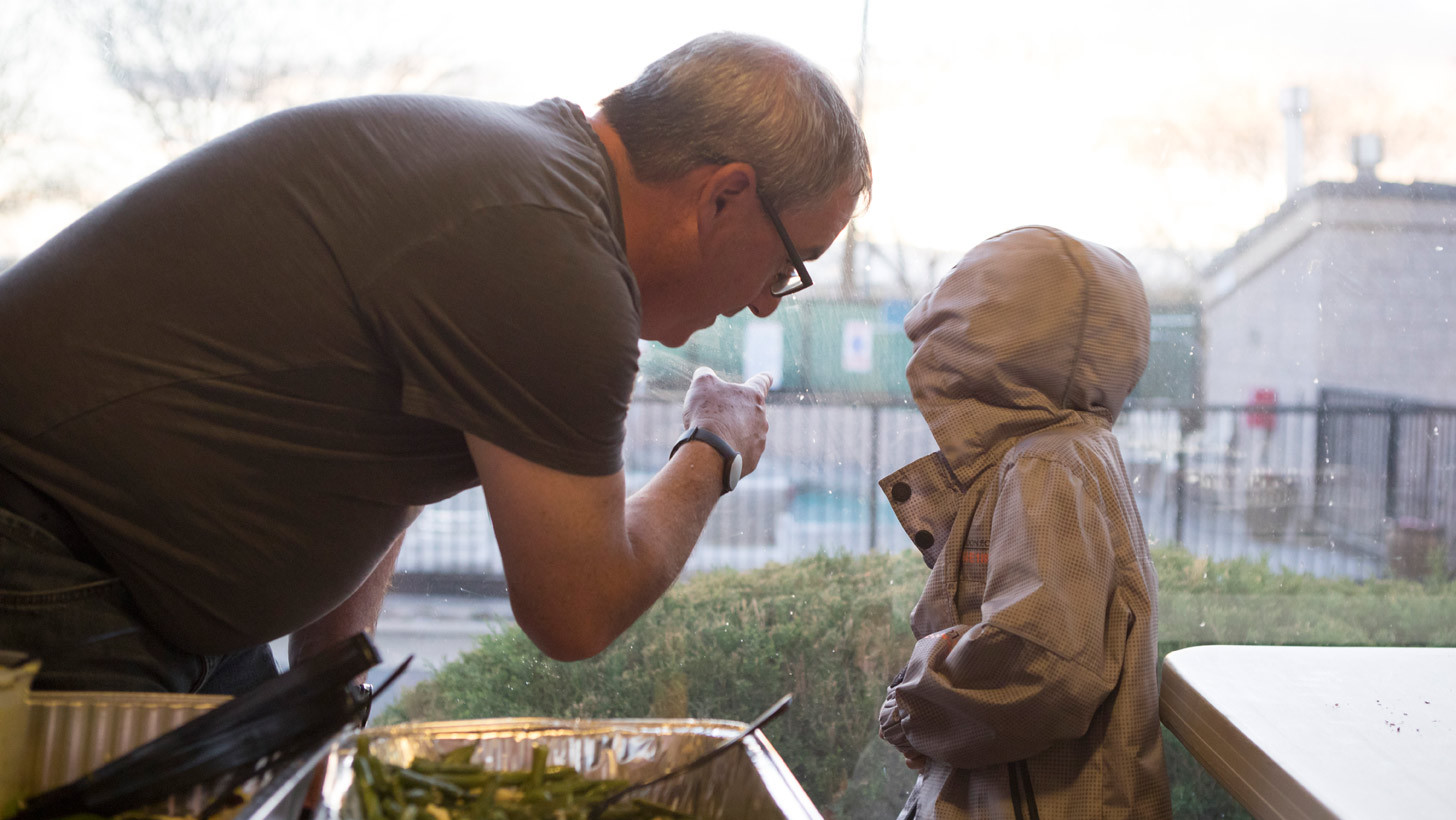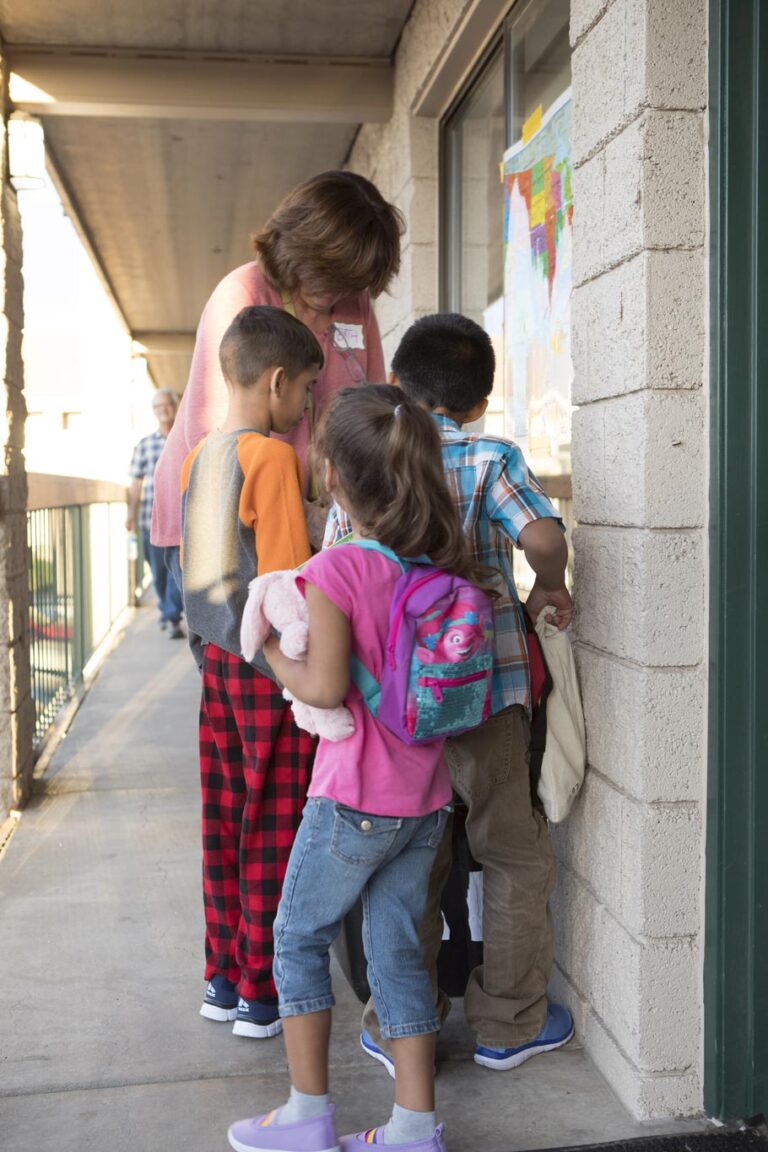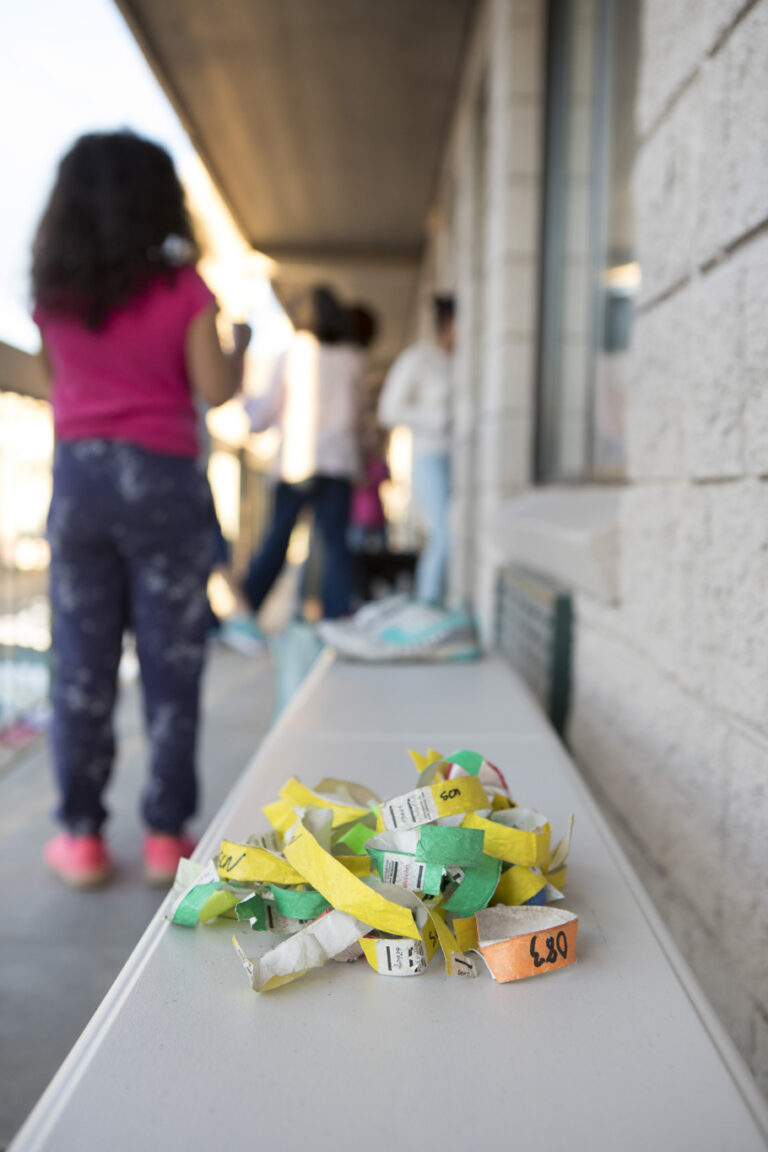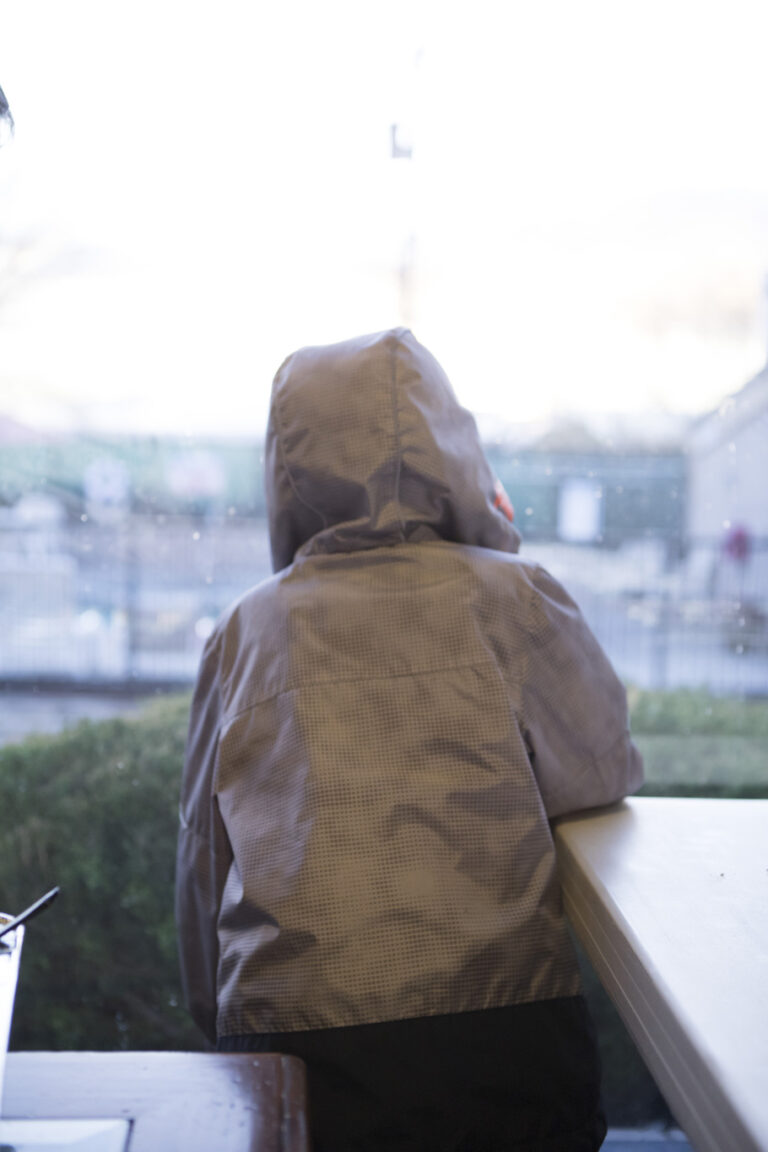Yesterday morning, I thought this would be a difficult story to write. Don’t ask me about Friday afternoon, a time of week when various citizens stop by Alibi HQ to tell their stories, to suggest the newsworthiness of these narratives in hushed and weary or angry, even bitter tones.But it’s the work that counts and whatever the case may be, I’m only human; the result is that I tend to perform triage on the news that passes through here. And other times, like it or lump it, local newspapers and reporters are a bastion of hope for those who feel they have no voice.That constant and concrete connection and attention to humankind—to the narrative of humanity and ultimately to a source of my own humanness—led me to put aside the day’s admonitions and conflicts so I could focus on the real business. The eyes of news had turned southward. Amidst bureaucratic failures—Homeland Security Secretary Kirstjen Nieslen is out as we go to press—border issues will continue to dominate the news cycle.And most of that can be folded into stories about immigration, about human beings and about a progressive city filled with merciful citizens seeking to bring light to a very dark place.The Bus Is ComingYou see, I had also spent the day waiting to hear from representatives of Albuquerque Interfaith. At some point, they were going to contact me about a busload of Central American asylum seekers who were journeying to The Duke City from a detention center in the mystical southlands.After trekking through Mexico for weeks, these families of refugees from Guatemala and Honduras turned themselves in at the Border near El Paso, officially announcing their plans to seek asylum in the United States. They were running from murderous drug cartels and a failing agricultural system caused—at least in part—by global warming. They had to leave their homes, their families scattered to cruel winds engendered by global capitalism and right-wing politics.After they willingly surrendered to US authorities, they were held in detention pens, given military-style food rations and made to sleep on concrete floors. At night, as they waited to learn their fates, they would cover up with emergency blankets made from metal.Finally, after days of waiting, one group was told they would be transported to Burque to await connections with US-residing family members, ahead of their detention hearings. On Saturday morning, April 6, one such US government transport vehicle headed toward el Norte, toward respite in Albuquerque and perhaps, if things went well with this or that immigration judge, toward a new life.The Donation CenterI spent the last part of the Friday workday visiting a Catholic church where donations were being gathered for the influx of refugees coming to El Duque. Women’s clothing, children’s shoes, simple hygienic supplies y todo were being gathered up and organized by a crew of gentlemen whose mien was focused into a dutiful and unwavering kindness. Brian Alonzo and Bill McHugh of ABQ Interfaith had teamed up with Terry Williams from St. Therese Parish to gather, catalogue, organize and prepare for distribution the tons of food and clothing that Burqueños had been driving over to the makeshift warehouse for the sake of fellow humans now sojourning toward a new world.All three worked feverishly but happily in that storeroom, and McHugh told me that here was the essence of their work, the work of Christ, to make Albuquerque a better place. After spending some time watching them at work and chatting with Brian about old-school skateboarding. I went home to wait for the inevitable phone call.SaturdayBy Saturday morning, I had given up thinking about other important news that had come my way so I could focus on a story that, if told properly, would reflect its primacy in facts. The day passed quickly. I wrote about a young rapper, I listened to a recording by a local Iraqi immigrant who played the oud plangently and with a passion that mirrored his hope and gratitude. I warned my wife and coworkers that I might not be available in the late afternoon or early evening because I wanted to meet with the people that were coming from the south.At about 5pm, my phone rang. It was Camy Condon on the line. She was a member of ABQ Interfaith who I contacted after hearing her story and getting her number from long-time Alibi reader Don Schrader.Ms. Condon called to tell me that the refugees had arrived. They were greeted with fellowship and a hot meal and would presently be settling in to their hotel rooms here in Burque, she said. I asked if I could join in on that celebratory circumstance. She said yes and put me on the phone with Eleanor Milroy, one of the leaders of ABQ Interfaith. Ms. Milroy gave me directions and asked me to wait until 7pm. I rang up our staff photographer, drank a strong cup of instant coffee with honey and half and half added, put my hair in a discreet ponytail and walked to my dinosaur juice-powered troca.A Merciful HomecomingI pulled into the parking lot of a local hotel where a typical Burque springtime evening—replete with the fragrance of wisteria and lilac—was commencing. Two young men chatted in Spanish at the lobby door. They smiled at me and I flashed them the peace sign.Inside, families sat at tables, conversing and eating. Children ran about joyously, tossing paper airplanes into the air or chasing after one another, distracted by happiness and a sense of fellowship. Many of the adults sat quietly possessed of the sort of introspection that comes after a first good meal in days. Volunteers busied themselves by helping in every way you’d expect a family to interact with those who have returned from a long and arduous trip.I was seated and presented to Ms. Milroy. We exchanged pleasantries and began to talk in depth about what exactly was happening here and all around me. As we spoke the tape rolled and a handful of folks came and went where we were seated. Each one wanted to tell Alibi readers about that day, about the asylum seekers, about mercy and justice. So we proceeded.The ConversationsWeekly Alibi: Eleanor, tell me about the people gathered here tonight.Eleanor Milroy: These folks have all presented themselves for asylum at the border. They’ve been picked up by the Border Patrol and processed through ICE.Do they have to voluntarily surrender to US authorities?Yes, they voluntarily surrendered on the border, near El Paso. They are processed through ICE. Every one we have here are either fathers with children or mothers with children. They have sponsors in the US, usually family members. So ICE processes them and releases them to us, brings them up here by bus. Our job is to get them connected to their sponsors.How long have they been traveling and what are those conditions like?So most of these people have been on the road for two or three weeks since they left home in Guatemala or Honduras. Our groups happen to be mostly Guatemalan with some Hondurans. They’ve been in ICE custody anywhere from three to six days. Some of this particular group was being held in that pen they made under a bridge in El Paso. Have you heard of that?Yes. Simon Romero of the New York Times reported last week on immigrants being held under the Paseo del Norte bridge. Apparently that has stopped for the meantime, partially because the press reported on it.They’re downright hungry and dehydrated when they get here. They have not had a chance to bathe. They sleep on cement floors with a small plastic pad and an aluminum blanket. So, to get here, have a hotel room with a real bed and a shower and food and some warmth and sense of community, that’s a huge thing. It’s a big deal. The difference between when they come here and when they leave is also huge in terms of what a few good sleeps and nutritious meals, a shower and fresh clothes can do for a person.How long will they stay here?They can stay until their sponsors work out transportation and settlement details. Then their cases will be heard in immigration court. They all have their dates. They need to be there in a few weeks, for most of them.[At this time, another volunteer sat down at the table and began conversing with our reporter as many of the refugees headed upstairs to their rooms]Carla Lanting Shibuya: Hi, I’m Carla.Hi Carla, how are you involved with this operation?Well, I am the site director.Eleanor: She’s the co-director, we’re sistas!And you’re from ABQ Interfaith as well?Yes and The Catholic Worker [Movement] and St. Therese Parish.Eleanor: She’s St. Therese, I’m St. Andrew.Carla, what does all this mean to you, why is it important?Oh, I should show you the thing I make everyone read before they do this.Okay.I’ll get it to you before you go.Okay.You know what? This is about all of us. Really. These are—you know we were trying to figure out what to name this and one of the things was “Welcome Stranger,” but we have even talked about changing that because, really they are not strangers; they are us. This is about us. These are our families, these are our children.It seems like this is a very welcoming environment. It seems like a family reunion. It seems enriching to be here, nutritious too.I wish you could have met everyone when they came here and got off the bus. Now, they’ve gotten their sense of self back. August, I’d like to introduce you to Heidi Muñoz and Mario Pino. We refer Mr. Pino as “Super Mario.”Mario Pino: Thanks, Carla …Mario, why did these refugees have to leave their homes and families in Central America?It’s mostly the gangs. They extort money from the common man. It’s like a protection racket against families. They go door to door and tell people they have to pay a work tax. If they don’t pay it, somebody in the family gets killed. Eleanor: A secondary factor is palm oil. It’s a big deal now. People are being shoved off their land to build palm oil plantations. The family agricultural model is destroyed. And as long as Americans have an appetite for drugs and junk food, there will be a bad effect on Central America.So these refugees don’t have an opportunity to build a better life in Guatemala or Honduras?Heidi: Exactly. And they suffer a lot to escape the chaos.Did this group know when they got on the bus this morning that things were going to get at least a little better?Eleanor: They get off the bus and the first thing we say is, “We are not ICE.” So it’s not like they get a briefing while they’re on the bus. They just don’t know what’s going to happen next, where they’re bound. When they arrive, Heidi does the orientation, tells them what this is about, what the process is going to be.Heidi: Yes, they come to us really confused. They feel like they are no longer human.Wow. This is such a complicated situation. How is our culture going to sort things out at the border?Eleanor: Albuquerque Interfaith is trying to help people that are here, you’re seeing that before your eyes. But secondly, we’re trying to engage the politics too. We’ve met with Congresswoman Deb Haaland and with Senator Martin Heinrich’s staff. We’ve also been working with the El Paso Congresswoman Veronica Escobar. This is all in an attempt to define and use a more humane policy.Does having Trump in office impede that sort of progress?Carla: Well, we’ve got to try. From a Catholic point of view, there’s two parts to this, there’s mercy and there’s justice. The justice part of this has to ask, “Why is this happening?”The PracticeAfter that, I excused myself to wander around and get the vibe of the place. As promised, and before I left, Carla handed me a piece of paper with some writing on it. As I headed upstairs this is what I read:“We are each other’s keepers. We claim the right to plant and cultivate the seeds of relational love. We make a commitment to the flourishing of compassionate accompaniment, advocacy, justice and the beloved community, in repudiation of denial and fear.”After that, everything, even Friday afternoon, made total sense.
Make a Donation!ABQ Interfaith is accepting donationsto help the asylum seekers as they transition to life in the US. Children’s clothing, small men’s clothing and shoes, baseball caps, fresh fruit, shoelaces and basic hygienic supplies are always needed.Take donations toSt. Francis Xavier Church School820 Broadway Blvd. SE • M-F 9am-5pm








